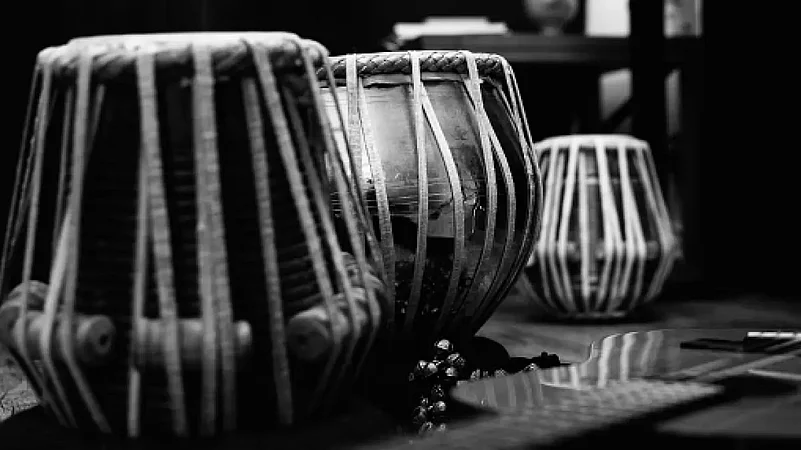PERRY
Even as a child of six, I knew there was something different about Perry – he heard voices that no one else did.
“Oi, Rangan is screeching in my ears again and blaming me for what happened,” Perry would stand at the door to the kitchen and complain to Amma.
Amma, in her characteristic gentle way, asked him what Rangan was shouting about. She always managed to convey by the tone of her voice that Rangan was unfair in accusing Perry and that what he said did not matter. I never found out who Rangan was or why he was blaming Perry. Like all children I intuitively understood that the topic was taboo.
Perryappa or Perry, as I affectionately called him, was my father’s elder brother. He lived with us and was more of a father to my father because he had brought him up from a very young age. Grandfather had died when Appa was barely nine. Perry had then been in his early twenties and had taken up the responsibility of supporting a large family consisting of several siblings and his mother. They didn’t starve, but they had none of the luxuries they were used to.
A few years later tragedy struck in the form of schizophrenia. Grandmother often told me how Perry had gone to the office in the morning, a perfectly normal man and had been brought home violent and unmanageable. She always maintained that it was a jealous colleague who had put his brilliant competitor out of the way by resorting to black magic. She said he had cast an evil spell into an orange and left it on Perry’s desk knowing Perry’s fondness for the fruit.
That was the beginning of a downward economic slide. The family suffered great privations. Relatives pitched in to help with work at his office and so Perry didn’t lose his job. He was treated for his illness; ‘cured’ and resumed going to work, but all hopes of a brilliant career and marriage were dashed. Perry remained a bachelor, though he often claimed that several generously made, curly haired, Christian women, with smooth skin the colour of gingelly oil had approached him with offers of marriage.
“Maashae, you should read the doctor. I suggest you start with An Idealist View of Life. That’s the simplest,” Perry would say, cornering Maash and showing him the book but not giving him the precious possession.
‘Maash’ who always looked like an advertisement for a detergent, clad in brilliant white mundu and matching brilliant white shirt, was the headmaster of a school and a frequent visitor to our little home. ‘The Doctor’ was Dr S. Radhakrishnan, India’s philosopher president. Perry worshipped the man. Any conversation with Perry veered into a discussion about Dr S. Radhakrishnan, with Perry’s favourite phrase ‘as the doctor says’. Perry bought all of Dr S’s books and read them cover to cover. No. That is an understatement. He studied them. Even now while dusting the books, I find small sheets of fragile, yellowing notepaper – that Perry ‘borrowed’ from my notebooks – with closely written jottings in his beautiful hand, neatly tucked into the pages. On the title page of every book Perry stuck a photograph of Dr S, clipped carefully from newspapers of the day. Most pages have underlined passages and the marginalia reveal his erudition and scholarly bent of mind.
Another of Perry’s great loves was Carnatic music. He could identify ragas easily. Many days in our small household ended with all of us gathered around the radio listening to late night Carnatic music concerts occasionally aired on All India Radio, with Perry humming along in his deep sonorous voice and waving his arms above his head in appreciation whenever the singer skilfully executed a difficult musical phrase.
“Arre! Pani dalo! Pani! Bucket lao!” screeched our normally sweet, soft-spoken landlady as she rushed up the stairs followed by a gaggle of women hastily roused from their post lunch nap.
It was a lazy mid-afternoon on a Sunday. Appa was then posted in Jabalpur. In answer to our puzzled looks she gestured wildly towards the window and climbed on at a run. We could see tongues of fire leaping outside Perry’s window! All of us ran upstairs to the terrace and poured buckets of water from the overhead tank. The fire died down but it could have easily spread as it was the peak of summer. Doubtless, Perry was the cause. He had casually thrown a lighted cigarette out the window after a few puffs, as he was prone to do and it had landed on an abandoned nest. All of us came down in a tumble, the adults ready to pounce on Perry. As we entered his room we found him seated on a straight backed chair by the window, a book in his right hand and a lighted cigarette in his left; the smoke curling peacefully upward. Appa’s thunderous call only made Perry look up mildly from his book for a moment and enquire in a gentle way what the matter was. Then without waiting for an answer, he dismissed us with a nod and went back to reading.
After this incident Amma persuaded Perry to give up smoking and take up chewing betel leaves instead. He had to have one vice, I suppose. Amma often persuaded him to give up one for the other after minor disasters. She had earlier persuaded him to give up paan when a jet of paan juice that Perry expertly spat out the window landed pat on a pedestrian’s head!
Amma and Perry shared a bond. He never called her by her name always making do with ‘oi’.
“I have a name you see,” she often told him with mock sternness. “Why don’t you call me by it? If you’d married, you’d have a daughter my age.” Perry would smile in answer but stick to his ‘oi’.
In spite of his disease and his bouts of moody anger, Amma and Perry got along famously. She always served him food first. Whenever she made any delicacy Perry got to taste it before everyone. Even I, her only surviving child, came a poor second. Years later, as Perry lay unconscious on his deathbed, he would respond only to her voice, recognising perhaps subconsciously the voice that had been unfailingly kind to him.
Perry insisted on running errands for Amma. He would buy her little things like a couple of matchboxes or a packet of tea leaves – things that she had forgotten during her monthly grocery shopping trips. He would refuse to put the money in his shirt pocket and would insist on holding it in his hand, clasped precariously between thumb and forefinger. Often the money would be snatched away on the way to the shop by rude boys who shouted ‘pagla, pagla’.
Perry shooed them away energetically, abusing them in earthy Malayalam; which they thought was gibberish. When we came down south to Kerala, Perry spoke chaste Hindi to all the shopkeepers and would be delighted when some of them responded fluently in the language.
“Go buy yourself a packet of biscuits,” Perry would say, coming up quietly behind me and tapping on my shoulder.
That was his standard remedy for my tears. Whenever I cried, (and I was a cry baby) he sent me on this little errand. He never once went out and bought the biscuits for me. As I left the house, eyes streaming and huge sobs wracking my body, (yes, I was, and proudly remain, a drama queen) I would hear him ask Amma the reason for the waterworks. By the time I got back with the biscuits I usually forgot what I had been miserable about. After his death, while sorting out his things, I found a few crisp two-rupee notes tucked away in his little leather purse.
For some years Perry and I shared an L shaped room. His bed was along the stem of the L and my bed and study table were tucked into the corner of the base. As I reached higher classes I used to put in a few hours of study at night and the light from my table lamp often woke him up.
“Who has switched on the lights?” he would growl.
“It’s me, Perry. I was going through what was taught today in school,” I’d reply.
“Oh, carry on, carry on,” he would say generously.
This conversation was repeated a few times every night.
Sometimes we shared a casket of kajal! As Perry grew older, he was troubled by cataract. Appa’s attempts to take him to a doctor were met with stubborn resistance. Perry was convinced that the doctor would ‘gouge my eyes out’! He took to applying kajal to his eyes firmly believing that it would help ‘peel the cataract away’. We often shared kajal from the same little box.
Perry died of old age. What always amazed Appa was that Perry knew the end was near and calmly accepted it. While in hospital he often remarked that his was a decaying body and that it would soon be no more. When someone came to fetch me from school in the middle of my class ten exams, I knew Perry was gone.
The dead are never really gone. They live on through and within us. I’m not surprised when I find that I write my ‘d’s and ‘r’s the way Perry did and my handwriting increasingly resembles his. Over the years I’ve read up on schizophrenia. May be it was stress that made Perry ill. The stress of knowing that many lives depended on him for their well-being. Often, I've listened to check if I can hear voices nobody else can. Mercifully, there has been a peaceful silence.
(Veena Narayan is a Kerala-based author whose work has appeared in Scroll, Jaggery and Desi Books Review among others. She is currently working on her second novel while her first is with an agent. She lives in Kochi, Kerala.)





















